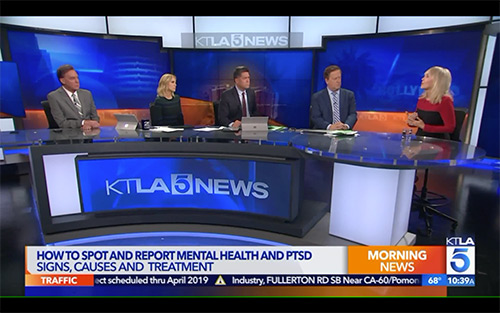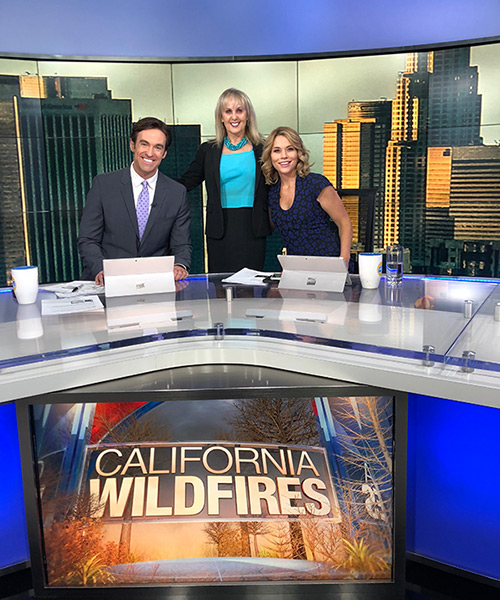We’re on the heels of two major tragedies in California. I’ve been asked to speak about trauma and PTSD recently. Most people associate PTSD with the military. While those brave men and women certainly suffer from this condition, it can affect those victimized by any traumatic event. Examples include natural disasters and mass shooters.
KTLA 5 Morning News November 16, 2018
On Fox Good Day LA with Tips for Coping after Trauma

More About Trauma & PTSD
To clarify, one is not diagnosed with PTSD immediately after a trauma. PTSD (Post Traumatic Stress Disorder) is a diagnosis for those with symptoms lingering long after the traumatic event. Early intervention attempts to prevent PTSD. About 75-80% of the time, acute traumatic stress is resolved with treatment and one can normalize. Those who are unable to receive immediate, appropriate care (military service people, for example, hostages, etc.) due to the inaccessibility of proper care, lack of awareness of the severity of the trauma (e.g., children) or choosing to “power through it” on their own are vulnerable to suffering from unresolved traumatic symptoms. These include flashbacks, nightmares, insomnia, appetite changes, extreme anxiety, depression, GI issues, numbness, irritability, anger, lack of focus or “brain fog,” heightened startle reflex, need to self-medicate, and more. Traumatic experiences do not have to lead to PTSD. Seek treatment with a trauma specialist, a psychologist, psychiatrist, a professional counselor, spiritual leader or a life coach.
The word trauma comes from the Greek word “wound.” If you broke your arm, you would probably not wait 6 months to set it. While it is never too late to treat psychological wounds, they heal best with immediate attention. Here are some tips to do so if you or a loved one are suffering from unresolved trauma:

Visit the trauma recovery page for more details and information. Please contact me to schedule an appointment or with any questions about how I can help you recover.

